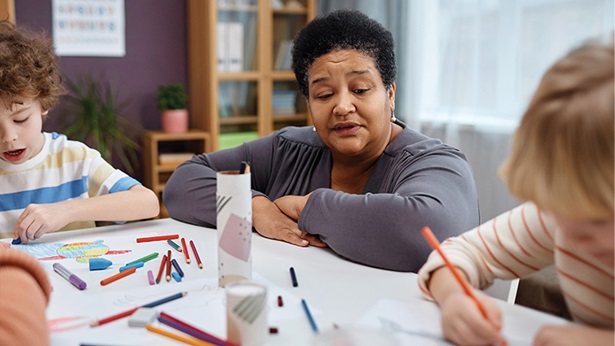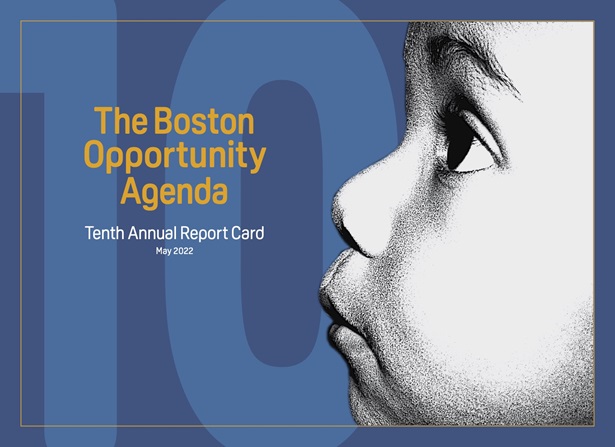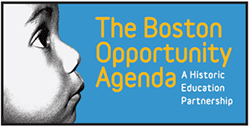
The Boston Opportunity Agenda
A historic education partnership
The Boston Opportunity Agenda is dedicated to ensuring
that all of Boston’s residents have the opportunity to acquire the
education they need to find work in the region’s knowledge economy
and to help them lead secure, fulfilling lives.
While Boston has many exciting programs and organizations that focus on providing opportunities for individuals, the Boston Opportunity Agenda is a long-term partnership focused on achieving systemic change that will ultimately affect all Boston residents. We fervently believe that by combining our resources, expertise and influence around a single agenda, we will have a greater impact on Boston’s cradle-to-career educational pipeline.
Joint statement from Success Boston, Boston Opportunity Agenda, New Skills Boston, and Opportunity Youth Collaborative on the Supreme Court affirmative action ruling.
Goals and Measures
Latest Reports

Strengthening the Foundation: A Profile of Early Childhood Educators in Boston and Beyond
The new report captures results of a survey of more than 600 early education professionals, and highlights demographics, education, turnover and experience of the current workforce - as well as policy opportunities to attract and retain these vital workers.
February 2024
Click to download the report
(Re)Building Boston’s Early Education and Care Sector
The latest update of supply and demand for early childhood and care seats finds progress in providing opportunities for children aged 3-5 in Boston, but much more needed for younger children, and significant differences in access between Boston neighborhoods.
May 2023

Boston Opportunity Agenda 10th Annual Report Card
The tenth annual report card takes a closer look at the impact of two years of pandemic on the achievement of students on key indicators from kindergarten through college and adult education. It finds mixed results for Boston's public and public charter school students, with some areas seeing much larger changes triggered by the pandemic than others.
June 2022

Boston’s Child-Care Supply Crisis: The Continued Impact of a Pandemic
Eight months after our original examination, a followup look at Boston's child-care system finds that the city has lost more than 1,400 child care seats during the pandemic, affecting not only the availability of care but substantially reducing the number of children receiving critical Early Intervention services,





